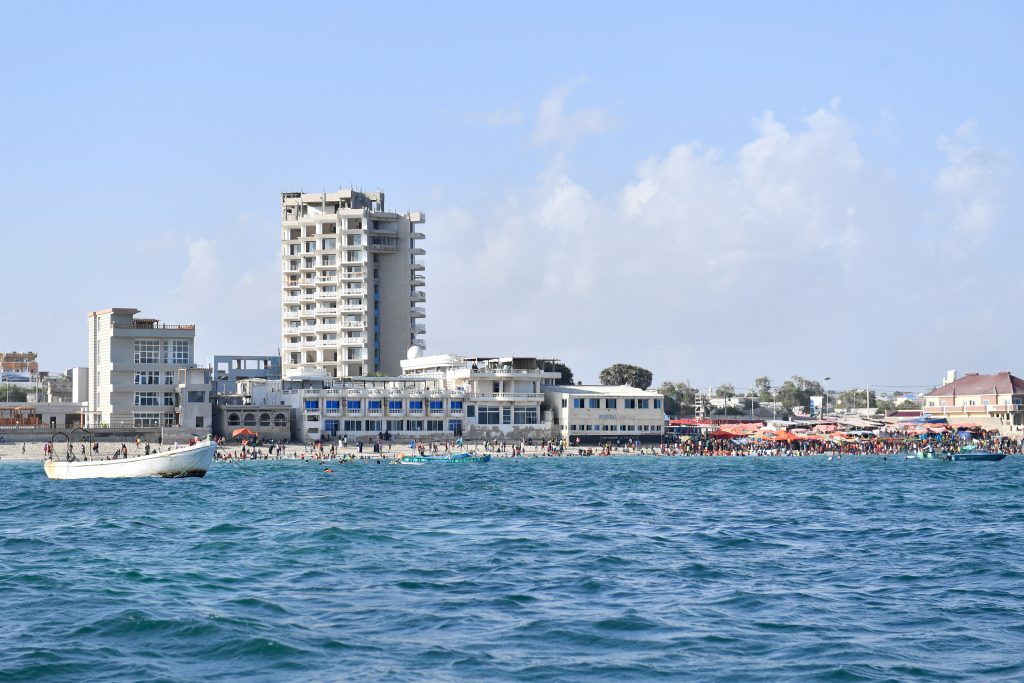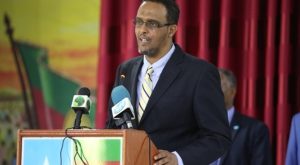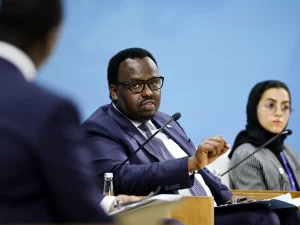Mogadishu ‘Never Been More Secure in a Decade,’ Somalia’s Deputy PM Says, Pointing to Economic and Political Transformation

A view of Lido beach from the sea in Mogadishu, Somalia on November 15 2019. AMISOM Photo
Mogadishu, once a byword for conflict and instability, is entering a period of cautious optimism, Somalia’s Deputy Prime Minister Salah Ahmed Jama said this week, declaring that the capital “has never been more secure in the last decade than today.”

Speaking to Anadolu Agency, Jama acknowledged that the fight against al-Shabaab is far from over but argued that Somalia has turned a corner, with improved security creating space for economic revival, political reform, and social renewal.
Jama credited Somali armed forces—backed by allies including the United States, Türkiye, and the African Union—for reducing the number of attacks and gradually pushing back the militant group. “The Somali people have shown a great deal of resilience and strength in fighting off one of the most potent terrorist groups in the world,” he said.
The deputy premier linked security gains directly to an economic boom, particularly in construction. New malls, roads, residential districts, and office towers are reshaping Mogadishu’s skyline, serving as a visible measure of stability and a platform for government-led urban development. Real estate growth, he noted, is not just cosmetic—it is central to attracting foreign investment, housing a growing population, and projecting confidence to the outside world.

Despite progress, Jama admitted Somalia faces severe humanitarian crises. Prolonged droughts and the impact of climate change continue to displace communities and strain livelihoods. He argued, however, that the state and society are becoming more resilient: “These are good times, but we surely still have great room for improvement.”
Politically, Somalia is pursuing its most ambitious reform in decades: transitioning to a direct election system based on one person, one vote. Jama described this shift as essential not just for democracy but for the economy. “If you don’t have solid institutional foundations, it is very difficult to attract foreign investment,” he said. “Politics is the foundational pillar on which we’re going to build our future.”
The deputy premier stressed that change is not confined to the capital. Federalism, he argued, has given regional states greater agency, and many rural communities now enjoy better infrastructure and improved living conditions. Social cohesion, once eroded by decades of conflict, is slowly being rebuilt.

Looking ahead, Jama was bullish about Somalia’s prospects. The country’s long coastline, fertile land, and potential for renewable energy investment, he said, could make it a regional hub for trade and agriculture. “Somalia is at the heart of global supply lines, and it has resilient and competent people that are willing to create wealth,” he added.
For Jama, Somalia in 2025, is no longer a nation defined only by its struggles but one emerging with a “bright future” anchored in security, bolstered by business and real estate development, and energized by the aspirations of its people.






